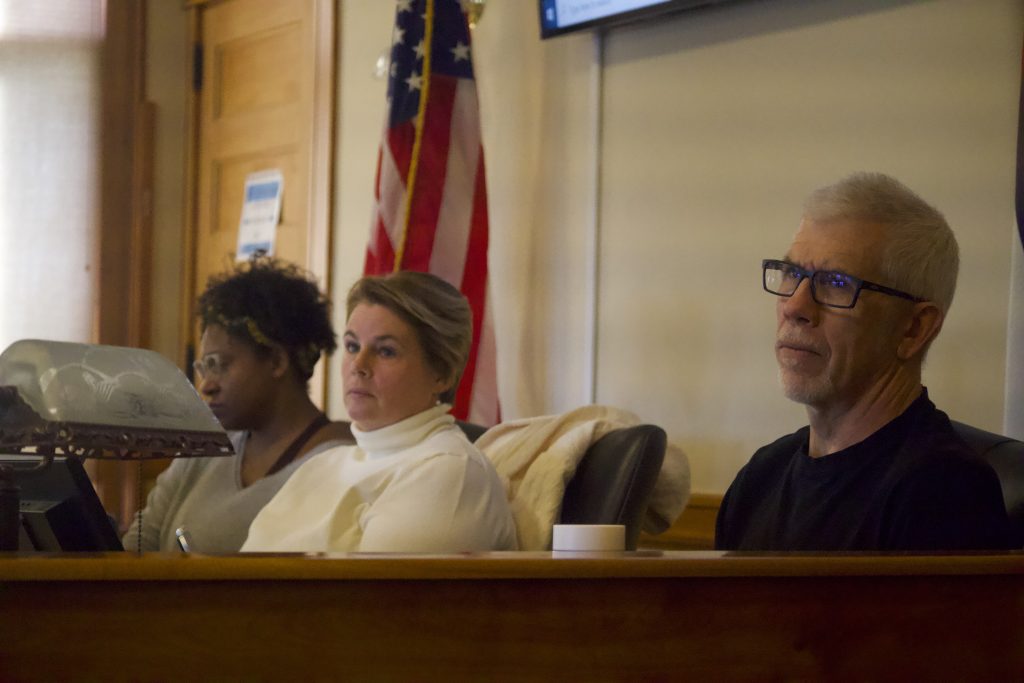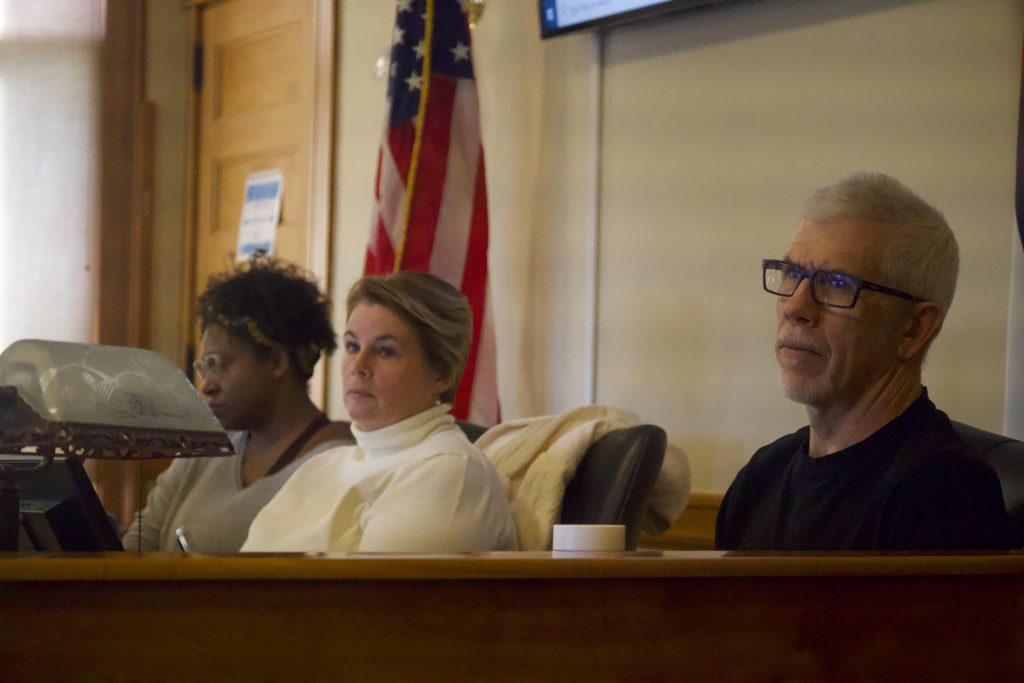
Robert Tann/Summit Daily News
The Summit Board of County Commissioners voted Wednesday to approve a 2024 budget, with two of the three commissioners ultimately deciding to forgo a mill levy reduction that would have slightly curbed property taxes for homeowners next year.
The decision caps months of deliberation among officials after the initial budget draft was released midway through October.
In the weeks that followed, state lawmakers held a special session, during which they passed a property tax relief package that cut the statewide assessment rate and allowed for up to $55,000 of a home’s value to be exempted by taxation. Those efforts were followed by a call from Gov. Jared Polis for local taxing entities, such as counties, to lower their mill levy rates in a bid to provide further tax relief to property owners.
But on Wednesday, commissioners Nina Waters and Eric Mamula, who was appointed by county Democrats earlier this week to succeed former commissioner Elisabeth Lawrence, decided against a mill reduction, arguing that retaining that revenue would serve residents better than the relief provided by a cut.
“We are in a place and a situation where a rainy day fund could be very beneficial for the county because we know things will always continue to come up,” Waters said shortly before voting for the budget. “I have a hard time choosing to float the mill.”
Commissioners had been considering a budget that would have reduced the Strong Future Fund, a voter-approved mill levy for designated programs, by 6.7% in order to lower the total of the county’s combined mills by 4.4%. The county’s mill total will still be reduced by 2.8% regardless to account for certain funds that are set at a fixed dollar amount.
A mill is a $1 payment on every $1,000 of assessed value that is factored into property taxes.
Officials had stressed that a further reduction would only impact infrastructure spending while leaving Strong Future Fund services — which include early childhood, behavioral health and recycling programs — intact.
Had that mill been lowered, the county’s finance department estimated it would have dropped property taxes for a $1.1 million home by about $22 — though tax bills will still be up in 2024 compared to 2023 due to a surge in property valuations.
The state has, however, passed legislation aimed at blunting that rise. Between the efforts of the special session and a 2022 law that cut the statewide assessment rate for this year, county officials estimate the property tax on that same $1.1 million home will be $200 lower.
A 10-person citizens budget advisory committee previously recommended against reducing the Strong Future mill to provide a further reduction, with committee chair Barbara Falco telling commissioners on Dec. 12 that “it will not provide meaningful tax relief to homeowners.”
Waters, on Wednesday, said, “I know that there are residents that are sitting on the precipice of $20 making or breaking their budget,” but she added, “… We have other ways that we can help you … may that be property tax deferrals, may that be other programs that we have offered.”
Stay up-to-date on all things Summit County. Get the top stories in your inbox every morning. Sign up here: SummitDaily.com/newsletter
Mamula said he did not believe the benefit of a mill reduction outweighed the reduction in funding to the Strong Future Fund, adding that he agreed with Waters.
Pogue, the lone commissioner to support a mill reduction, said she had been conflicted about the proposal but still supported it because it would have helped low-income homeowners.
“If you are on the lower end of our economic spectrum in Summit County, $20 is $20,” Pogue said. “I think, for many people who own property in Summit County, that’s going to be the thing that makes this community finally unaffordable.”
She added that, with the way the mill reduction was designed, it would have only deferred some infrastructure plans while protecting voter-approved programs, “which I think is something that we could have afforded to do.”
She told her fellow commissioners, “I think we’ll have a lot more work to do in this space as we move into next year.”
The approved 2024 budget will boost the county’s property tax revenue by about 36% for a total of $65.4 million, though the majority of that will go to voter-approved funds like Strong Future. Its general fund, the county’s largest spending source for essential services such as public safety and department staff, will only see a 7% increase.
That’s because while taxes on home, land and commercial properties are set to rise significantly in 2024, only one-third of the total property tax revenue generated goes to the county government. Another third goes to the Summit School District, and the rest goes to other places such as Colorado Mountain College, fire and water districts, and a host of other taxing entities.
The revenue boost is being largely used to close a deficit in the general fund from 2023, which hovered at around $9.8 million. Those gains will also be offset by a reported loss in revenue due to the incorporation of Keystone, which finance officials claim will cause a roughly $6 million reduction to the county overall.
While Keystone could still contract with the county to provide certain services, officials have said they are waiting on an intergovernmental agreement to know what that could look like.







